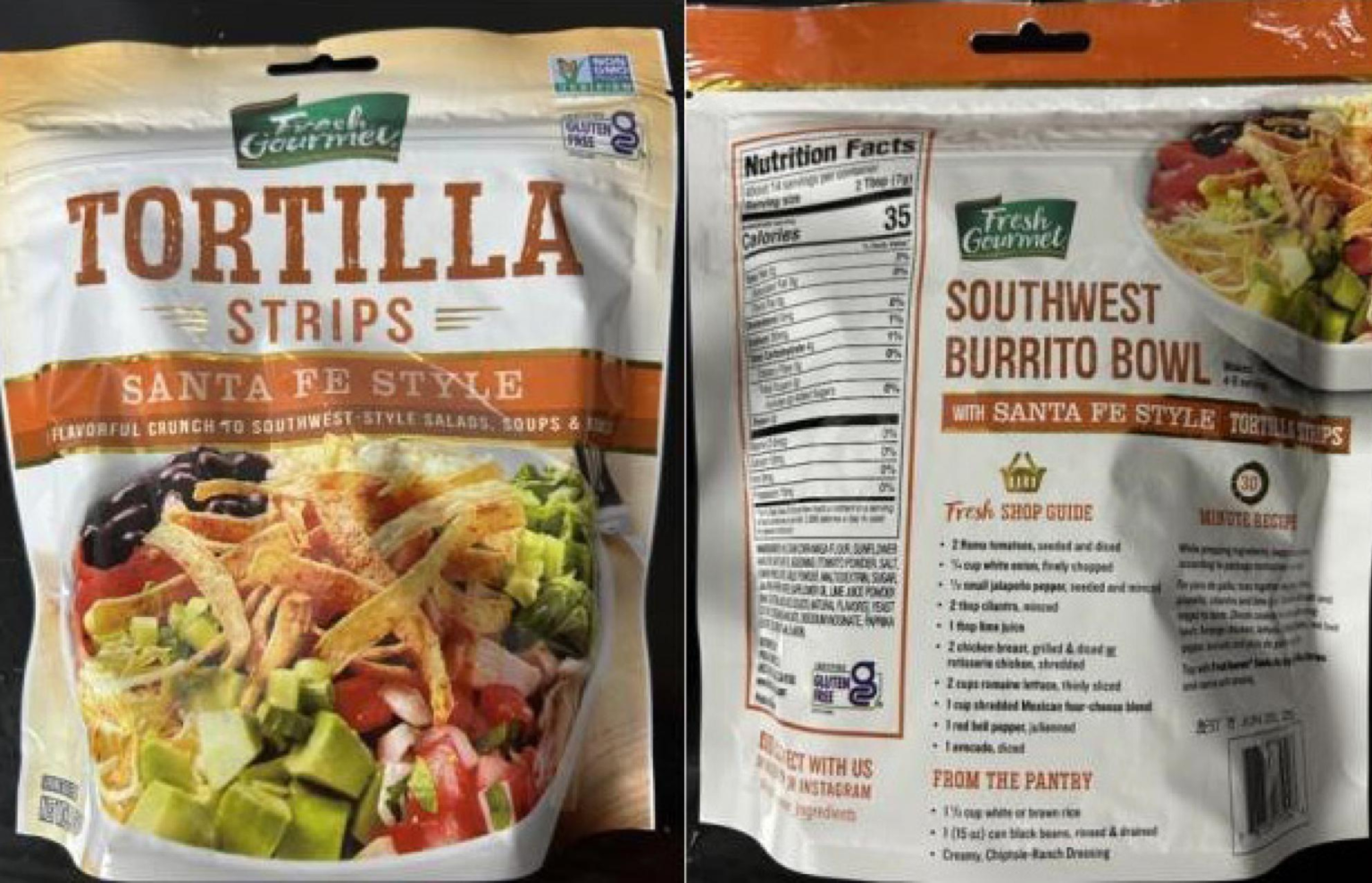Paragraph 1: Recall Initiated Due to Undeclared Wheat Allergen
Sugar Foods Corporation has voluntarily recalled its Fresh Gourmet Tortilla Strips Santa Fe Style due to the presence of an undeclared wheat allergen. The recall was initiated after a consumer reported finding crispy onions, which contain wheat, within the tortilla strip packaging. Wheat is a major allergen that must be declared on food labels according to U.S. regulations. The unintentional inclusion of wheat-containing crispy onions poses a significant health risk to individuals with wheat allergies or sensitivities, potentially triggering mild to severe allergic reactions. The company’s prompt action in recalling the product demonstrates a commitment to consumer safety and adherence to FDA regulations.
Paragraph 2: FDA Classification and Recall Details
The Food and Drug Administration (FDA) has designated this recall as Class II, indicating a potential for temporary or medically reversible adverse health consequences, with a remote probability of serious health risks. This categorization underscores the importance of avoiding consumption of the recalled product, particularly for those with wheat sensitivities. The affected product is the 3.5-ounce pouch of Fresh Gourmet Tortilla Strips Santa Fe Style, bearing the UPC 7 87359 17504 6 and a best-by date of June 20, 2025. Consumers are advised to check their pantries and discard or return the product to the place of purchase for a refund.
Paragraph 3: Distribution and Potential Health Consequences
The recalled tortilla strips were distributed across 22 states, primarily through distribution centers. These states include Arizona, California, Colorado, Florida, Georgia, Iowa, Idaho, Illinois, Indiana, Maryland, Maine, Michigan, Minnesota, North Carolina, New Jersey, Ohio, Oregon, Pennsylvania, Texas, Utah, Virginia, and Washington. Individuals with wheat allergies or sensitivities who consume the recalled product could experience a range of allergic reactions, from mild symptoms like hives, rashes, and swelling to more severe reactions such as vomiting, diarrhea, abdominal cramping, and respiratory issues. In rare cases, anaphylaxis, a life-threatening allergic reaction, can occur, characterized by throat swelling, difficulty breathing, a drop in blood pressure, and potential loss of consciousness.
Paragraph 4: Significance of Allergen Labeling and Reporting
The incident highlights the critical importance of accurate allergen labeling and prompt reporting of potential contamination issues. Undeclared allergens pose a serious threat to individuals with food allergies, and accurate labeling is essential for informed consumer choices and the prevention of accidental exposure. The consumer who initially reported the discrepancy played a crucial role in initiating the recall process, demonstrating the importance of consumer vigilance and communication with manufacturers and regulatory bodies. The FDA’s swift response in classifying and publicizing the recall further emphasizes the collaborative effort required to protect public health.
Paragraph 5: Undeclared Allergens as a Leading Cause of Recalls
Undeclared allergens represent a significant and recurring challenge in the food industry, consistently ranking as the leading cause of food recalls. This prevalence underscores the need for robust quality control measures throughout the food production and distribution chain. Traceone’s findings, indicating that undeclared allergens accounted for 40% of recalls between 2020 and 2024, emphasize the persistence of this issue despite regulatory efforts and industry best practices. Addressing this persistent challenge requires a multifaceted approach involving enhanced production processes, stricter labeling protocols, and ongoing education for both food manufacturers and consumers.
Paragraph 6: Food Allergies and Public Health Implications
Food allergies affect a substantial portion of the population, with an estimated 6% of adults and 8% of children experiencing one or more food allergies in the United States. The prevalence of food allergies underscores the importance of rigorous allergen management within the food industry and the need for public awareness and education. Individuals with known allergies must diligently check food labels and be aware of potential cross-contamination risks. Educating the public about the signs and symptoms of allergic reactions, as well as the importance of prompt medical attention in cases of severe reactions, is crucial for mitigating the health risks associated with food allergies. The collaborative efforts of regulatory bodies, food manufacturers, healthcare professionals, and consumers are essential for creating a safer food environment for individuals with food allergies.

